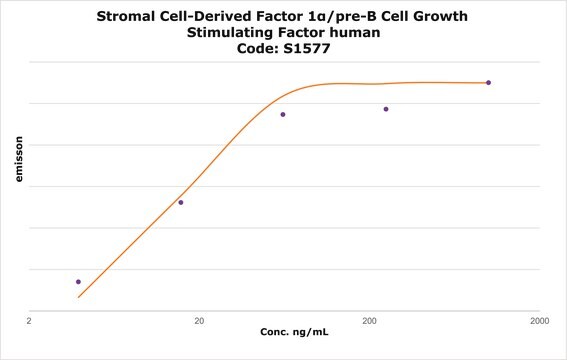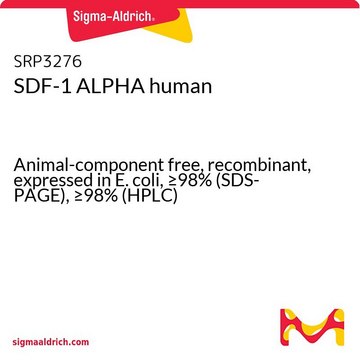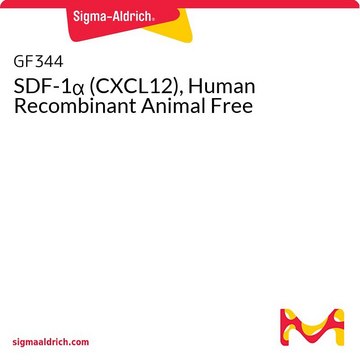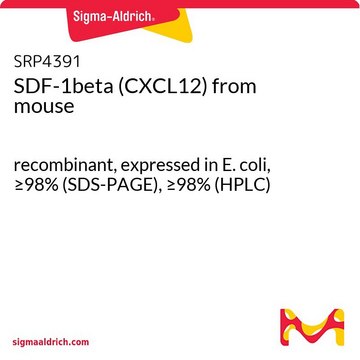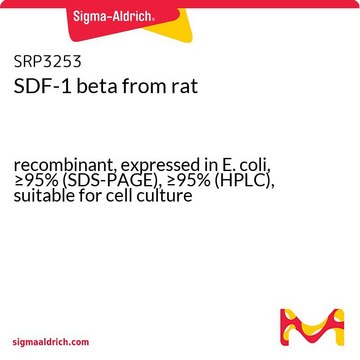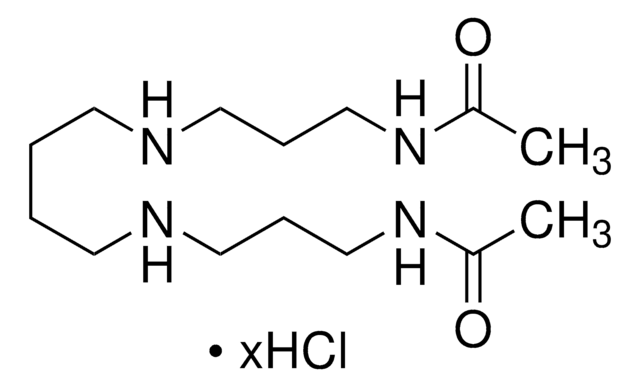S5816
Stromal Cell-Derived Factor 1α/pre-B Cell Growth Stimulating Factor from mouse
>97% (SDS-PAGE), recombinant, expressed in E. coli, powder, suitable for cell culture
Synonym(s):
SDF-1α/PBSF
About This Item
Recommended Products
Product Name
Stromal Cell-Derived Factor 1α/pre-B Cell Growth Stimulating Factor from mouse, SDF-1α, recombinant, expressed in E. coli, powder, suitable for cell culture
biological source
mouse
Quality Level
recombinant
expressed in E. coli
Assay
>97% (SDS-PAGE)
form
powder
potency
0.15-0.6 ng/mL ED50
quality
endotoxin tested
mol wt
predicted mol wt ~8 kDa
packaging
pkg of 10 μg
storage condition
avoid repeated freeze/thaw cycles
technique(s)
cell culture | mammalian: suitable
impurities
<1 EU/μgtested (LAL test)
UniProt accession no.
storage temp.
−20°C
Gene Information
mouse ... Cxcl12(20315)
General description
Application
Biochem/physiol Actions
Physical form
Preparation Note
Analysis Note
comparable product
Storage Class Code
11 - Combustible Solids
WGK
WGK 3
Flash Point(F)
Not applicable
Flash Point(C)
Not applicable
Personal Protective Equipment
Choose from one of the most recent versions:
Already Own This Product?
Find documentation for the products that you have recently purchased in the Document Library.
Our team of scientists has experience in all areas of research including Life Science, Material Science, Chemical Synthesis, Chromatography, Analytical and many others.
Contact Technical Service